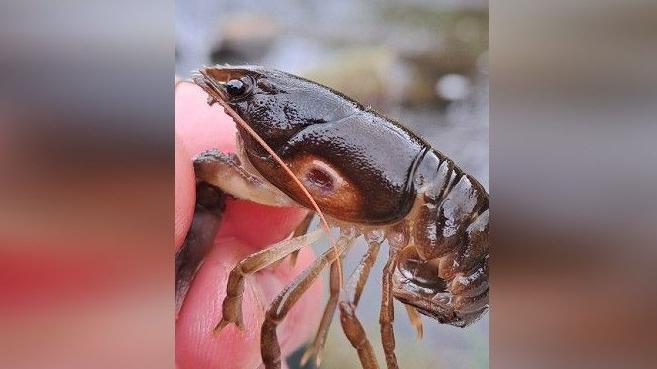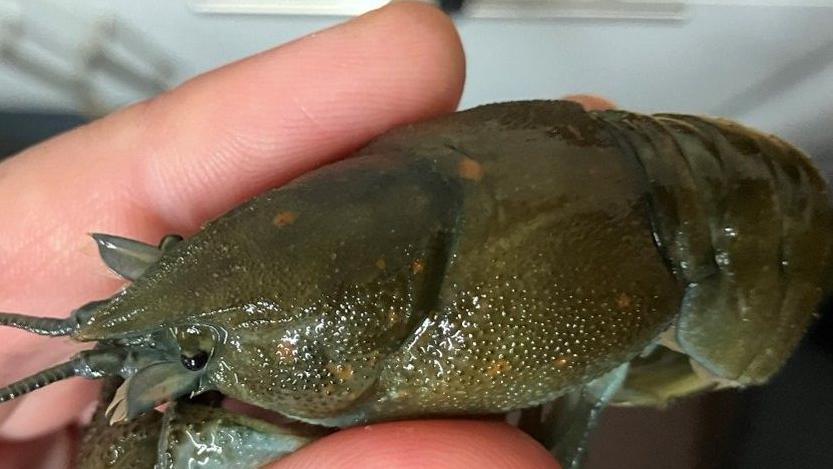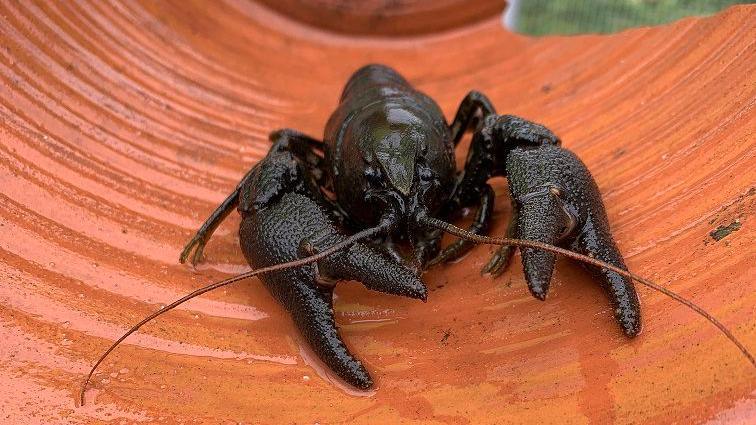Endangered crayfish quarantined following deaths

The Environment Agency believes about 100 crayfish have died since September
- Published
Endangered white-clawed crayfish are being quarantined following the spread of a mystery illness.
About 100 of the crustaceans have died around the River Wansbeck in Northumberland - one of the last strongholds of the species - since the end of September.
Surveys revealed native crayfish displaying unusual orange patches on their shells across the Wansbeck catchment and in the South Tyne and Rede rivers.
The Environment Agency (EA) said visibly healthy crayfish would be removed and monitored a minimum of three months to ensure they do not develop symptoms, before being released into safe sites.
The EA said investigations were ongoing into the cause of the deaths but ruled out pollution.
Sarah Jennings, area environment manager, said: "There's a lot we still don't know about what's happening to the white-clawed crayfish.
"This is a positive step in what is still a concerning and developing situation."

Orange patches appear on the shells of the infected crayfish
Crayfish will be removed from the River Wansbeck at the National Trust's Wallington Estate near Morpeth, and from Northumbrian Water's Hallington Reservoirs near Corbridge.
Females carrying eggs will be kept in tanks at Northumberland Zoo, which has facilities to rear the young and release them.
Males and females will also be quarantined by the National Trust in tanks at Wallington.
Wallington National Trust ranger, Nick Allen, said they were hopeful efforts will "support the long-term survival" of the crustaceans in Northumberland.
"This latest challenge to one of our country's native species is a stark reminder of the increasing number of threats nature is facing," he said.
Follow BBC North East on X, external, Facebook, external, Nextdoor and Instagram, external. Send your story ideas to northeastandcumbria@bbc.co.uk.
- Published6 October 2024
